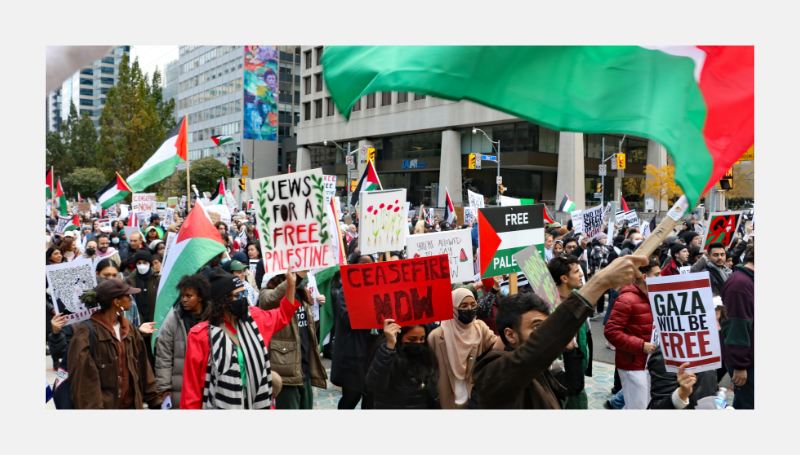Tal Fortgang
Mosaic Magazine, Dec. 2, 2024
“Hatred of Israel may be distinguishable from hatred of Jews in theory, but in reality they are inextricable.”
As the fall semester comes to an end, there has been only modest relief for Jewish college students in America. A series of congressional hearings throughout 2023 and 2024 led some university administrators to prevent demonstrators from taking over public spaces and the like, but institutions of higher learning remain rife with obsessive hatred of Israel. Jewish students feel threatened or targeted; many fear wearing outwardly Jewish symbols or mentioning trips to Israel lest they be ostracized as “Zionists.” Israeli students and faculty are especially likely to be harassed. The state of the campus has led many to despair.
But despair is not warranted. There is in fact a lot that can be done with little more than a change in approach and by making more effective arguments. While the underlying problems that led universities to become hubs for anti-Semitism are complex and longstanding—and may take generations to fix—the federal government already has the requisite legal means to crack down on the ongoing abuses of Jewish students. It can make clear to university administrations that they will be held responsible for allowing the sort of eliminationist anti-Israel climate that has persisted on too many campuses. It can punish institutions that incentivize or ignore anti-Jewish discrimination, including with the radical step of suspending federal funds. Even admissions policies that allow significant numbers of Hamas-sympathizers into universities can come under scrutiny. A range of new policies, if enacted, would strengthen these existing legal tools further. All it will take is political will—and for Jews to make explicit what it is they want, and why that political will is due.
Of course, there are several fronts on which American Jews need to fight: we ought to engage in the battle of ideas in the academy, in the media, and in the public square; we must expose and stop foreign funding of campus protest movements (often by Iran or U.S.-designated terrorist groups), not to mention the vast social and political battle to support Israel beyond the campus. But most of this essay will focus on how to use America’s robust system of civil-rights law to make colleges and universities safe for all Jews once again.
I. Avoiding the Anti-Zionism-vs.-Anti-Semitism Trap
Before delving into civil-rights law, however, it is important to make one clarification. The anti-Israel campus agitators and their many apologists—no small number of Jews among them—insist that the campus demonstrations aren’t aimed at Jews per se, but only at the state of Israel or its policies. Universities seem to have largely accepted this argument. So long as administrators don’t condone the most obvious anti-Jewish actions by demonstrators—such as establishing no-go zones for Jews at UCLA, or stalking and assaulting Jews at Harvard—they can maintain the fiction that “anti-Zionism” is garden-variety political speech. As such, it is different in kind from anti-Jewish discrimination and cannot be punished. …Source


